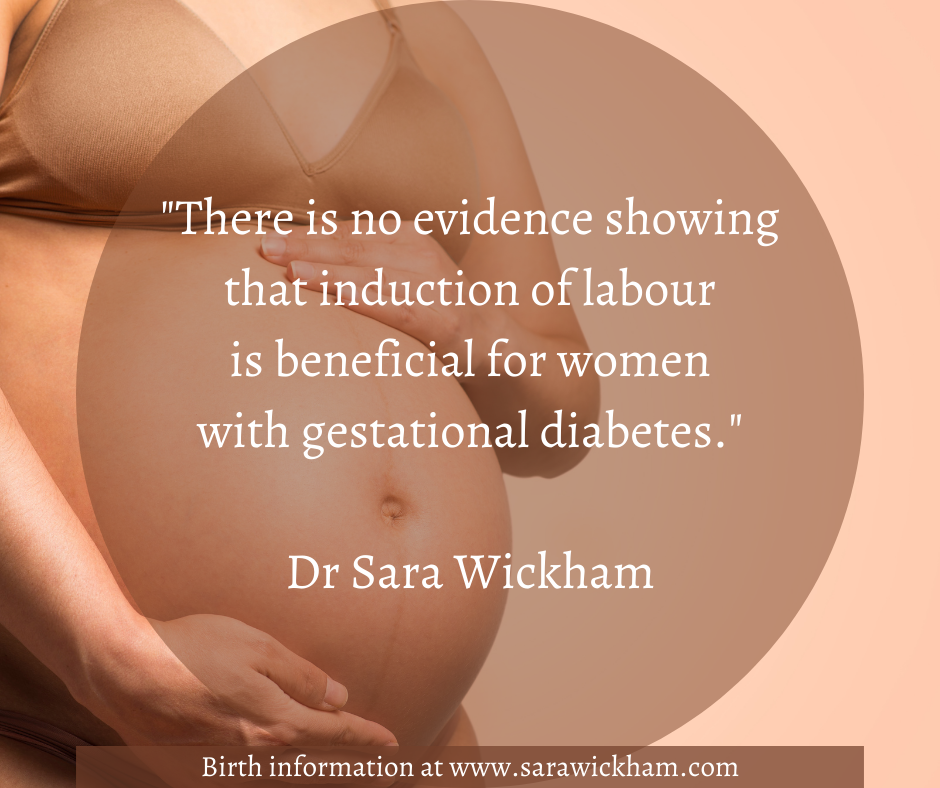
Gestational diabetes mellitus (GDM) is a type of diabetes that occurs during pregnancy, usually between the 24th and 28th weeks. It is characterised by high blood glucose levels that the body cannot adequately manage because it is unable to produce enough insulin to meet the extra needs of the pregnancy. If untreated, it can lead to complications for both the mother and baby. GDM affects up to 10% of pregnancies. Understanding the basics of GDM is crucial for providing effective, informed and compassionate support.

Being aware of the risk factors for GDM, as identified by the NHS can be useful:
It’s worth remembering that these risk factors are wide and in the majority of cases where risk factors occur the woman will still not experience GDM. Despite this, your client may still experience healthcare professionals pushing GDM screening. Doula’s often find themselves supporting clients to decline screening.
Clients at risk will undergo a glucose tolerance test (GTT) between 24 and 28 weeks of pregnancy. This involves fasting overnight, consuming a glucose solution, and having blood tests at intervals to measure how the body processes sugar.
As doulas, our clients rely on us for accurate, up-to-date information. Familiarise yourself with NHS guidelines and also NICE guidelines, as well as the work of people like Dr Sara Wickham. AIMS have a really useful book about Gestational Diabetes, which can be helpful to signpost clients to.
Diet is a cornerstone of managing GDM. Advise your clients to focus on:
Provide resources such as meal planning guides or connect them with a registered dietitian.
Physical activity can help control blood sugar levels. Encourage clients to engage in safe, regular exercise like walking, swimming, or prenatal yoga. Tailor recommendations to their fitness levels and preferences or even join them for physical activity as part of your antenatal package.
A diagnosis of GDM can be stressful. Be a source of emotional support. Listen to their concerns, validate their feelings, and provide reassurance. Help them understand that with proper management, they can have a healthy pregnancy.
Discuss the potential implications of GDM for their birth plan. A diagnosis of Gestational Diabetes will undoubtedly lead to pressure for your client to consider interventions such as induction or caesarean section. Help your clients prepare by discussing their options and preferences and reminding them that guidelines are just that… guidelines. They are in control of all decisions made in relation to their body and baby.

Dr. Sara Wickham, a respected midwife and author, offers valuable perspectives on managing GDM. In her book, "Gestational Diabetes: What Every Pregnant Woman Needs to Know," she emphasises the importance of individualised care.
“Every woman’s body is different, and so is her pregnancy. It’s crucial that we look beyond the numbers and consider the whole person,” says Dr. Wickham.
She advocates for informed decision-making and personalised care plans.
Supporting clients with gestational diabetes is a multi-faceted task that requires a blend of knowledge, empathy, and practical advice. By staying informed and providing comprehensive support, you can help your clients navigate this challenging aspect of their pregnancy with confidence and grace.
Remember, your role as a doula is invaluable. Your support can make a significant difference in your clients’ pregnancy journey and is often the difference between a woman receiving individualised care or being swept along blindly directed by NHS guidelines only. Continue to empower and educate, ensuring every client feels supported and understood.
References: